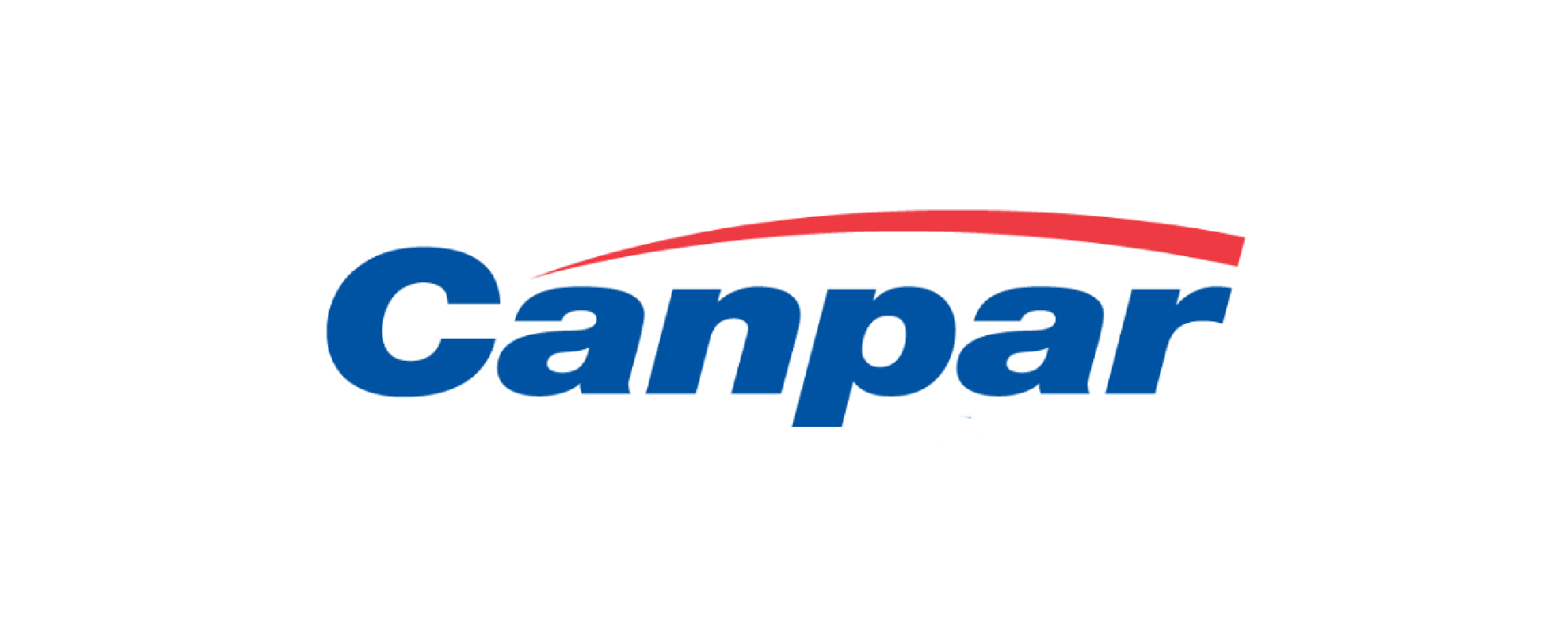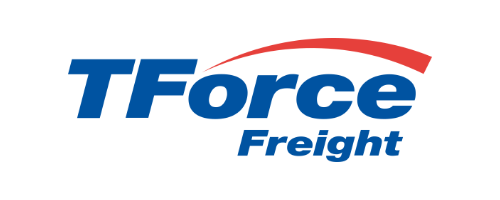Filing Claims will
Never be a Hassle Again!
What is a Claim?
Everyone involved in the shipping process works toward the same goal: to get goods safely and securely from one place to another. Sometimes, there can be complications and your shipment is lost or damaged. This is when you file a claim.
A claim is a legal demand by a shipper, consignee, or product owner to a carrier for financial reimbursement.
Ready to start a claim? Click below to start your claim.
Table of Contents
- General Guidelines
- Carrier Deadlines for Claim Submission
- What Needs to be Provided When Submitting a Claim
- Freightcom's Recommendations for a Smoother Claims Process
- Carrier Inspection for Damaged Claims
- Carrier Insurance
General Guidelines
- For any claim to be processed by the carrier, the freight charges must be paid in full. Freightcom will always include your freight charges in the claim amount when submitting the claim to the carrier for reimbursement. Please be sure to include a breakdown of any additional transportation costs that need to be included in the claim- i.e return charges, etc. Not paying the freight bill will work against your claim as proof of payment needs to be provided to the carrier when the claim is being submitted.
- To submit a claim follow these steps, click here
- It is essential to note that shipments where Freightcom Insurance has not been purchased are subject to the carrier’s maximum liability as established in their terms and conditions. Carrier liability will only apply for shipments that are not moving at the shipper’s risk of loss or damage.
- Claims can only be filed for missing or damaged shipments. The claimed amount can only be for actual damage or loss, any incidentals including but not limited to loss of income/profits, time, etc. cannot be claimed.
- Carriers require a minimum of 30-90 days to settle claims
- It is essential to note that shipments, where Freightcom Insurance has not been purchased, are subject to the carrier’s maximum liability as established in their terms and conditions. Carrier liability will only apply for shipments that are not moving at the shipper’s risk of loss or damage.
- Disputes/refund requests for shipments moved with guaranteed services that didn’t meet the delivery requirements should be sent to accounting@freightcom.com for a speedier resolution (as opposed to the former process of filing a claim). The guarantee does not apply when delivery is delayed due to the package not complying with the service restrictions and conditions set out in the carrier’s terms and conditions of carriage, from events beyond carrier control (weather delays, customs delays, and/or any shipments requiring special handling) or any shipments moved at shipper’s risk of damage/loss (including liquids, glass, etc.).
Responsibility to mitigate loss (This applies especially to LTL freight claims and insurance claims):
Legally, as the owner of the goods, you must do what you can to keep the loss to a minimum. The loss amount can be reduced and mitigated by choosing to keep the damaged freight for a discounted price or having the goods repaired (if this would be cheaper than replacing the goods altogether). Reducing the loss generally expedites the settlement of your claim with the carrier and insurance company.
Carrier Deadlines for Claim Submission
| Courier | Lost Claims | Damage Claims |
| UPS | Claim must be submitted within 6 months of the pick up date. | Claim must be submitted within 60 days of delivery date. |
| Canpar | Claim must be submitted within 180 days of the pick up date. | Damage must be reported within 30 days of delivery date. Claim must be submitted within 60 days of delivery date. |
| Purolator | Claim must be submitted within 90 days of the pick up date. | Claim must be submitted within 60 days of delivery date. |
| FedEx | Claim must be submitted within 9 months of the pick up date. | Claim must be submitted within 21 days of delivery date. |
| Stallion Express | Claim must be submitted within 21 days from last scan or tracking update. | Claim must be submitted within 21 days from last scan or tracking update. |
| A&B Courier | Claim must be submitted within 15 days of delivery date. | Claim must be submitted within 15 days of delivery date. |
| GLS Courier (Canada) | Claim must be submitted within 9 months of the pick up date. | Claim must be submitted within 60 days of delivery date. |
| GLS Courier (US) | Claim must be submitted within 90 days of the pick up date. | Claim must be submitted within 90 days of pick up date. |
| ICS Courier | Claim must be submitted within 9 months of the pick up date. | Claim must be submitted within 60 days of delivery date. |
What Needs to Be Provided When Submitting a Claim
- Cost/purchase invoice
- Photos of the damaged package (before unpacking)
- Photos of the damaged product itself
- Photos of how the shipment was packaged prior to shipping (if available)
- A detailed description of loss or damage including the value of the claim must be provided
Freightcom's Recommendations for a Smoother Claims Process
-
It is best practice to notify your receivers to inspect the freight before signing the Proof of Delivery (POD) and to note any damage or loss on this document. Be sure to note this both on your copy and the driver’s copy of the paperwork.
- Note: Courts have generally ruled that a consignee may not open the containers and examine the merchandise before giving a receipt to the carrier unless the containers indicate the probability of damage.
- Report any damages or loss as soon as possible following delivery to ensure the carrier will accept the claim.
- If you discover damage after delivery and the delivery receipt has a vague notation or no notation, you may find it more difficult to obtain prompt and satisfactory settlement of your claim.
- Ensure your shipment meets the packaging guidelines of the carrier otherwise your claim may be denied due to insufficient packaging:
- Do not use old or previously used boxes to ship your goods as this would be grounds for a claim to be denied due to improper packaging.
- Freightcom recommends to take a picture of your package or pallet with the shipping label attached prior to it shipping out. This will help in case your shipment gets lost/misrouted to help locate it faster but is also very beneficial to include in a claim as it shows how the package looked when it shipped out and can be compared with the pictures on delivery
Carrier Inspection for Damaged Claims
-
Carriers require the receiver to retain the original packaging and goods until an inspection can be completed by the carrier or it’s agent. If it is not kept, the claim is automatically denied (exceptions are sometimes made if pictures are sufficient but this is at the carrier’s discretion).
Be sure to provide the receiver’s phone number. If the carrier is unable to get a hold of them, this will delay the inspection process as the carrier may need to make arrangements to pick up the package. If the carrier is not able to get in contact with the receiver after multiple attempts, the claim will automatically be closed on their end.

Terms and Conditions

Terms and Conditions

Terms and Conditions
Shipments that are transported by air are subject to the lower of declared value or approximately $30/kg.
Shipments that are transported by road are subject to the lower of declared value or approximately $11/kg

Terms and Conditions
Shipments are covered up to a maximum of $100 with the following exceptions:
If the item shipped falls under UPS’ prohibited articles, dangerous goods or shipper’s risk which includes but is not limited to liquids, ceramics, glass, televisions and perishables

Terms and Conditions


Table of Contents
- General Guidelines
- Carrier Deadlines for Claim Submissions
- What Needs to be Provided When Submitting a Claim
- Freightcom's Recommendations for a Smoother Claims Process
- LTL Claims
General Guidelines
- For any claim to be processed by the carrier, the freight charges must be paid in full. Freightcom will always include your freight charges in the claim amount when submitting the claim to the carrier for reimbursement. Please be sure to include a breakdown of any additional transportation costs that need to be included in the claim- i.e return charges, etc. Not paying the freight bill will work against your claim as proof of payment needs to be provided to the carrier when the claim is being submitted.
- To submit a claim follow these steps, click here
- It is essential to note that shipments where Freightcom Insurance has not been purchased are subject to the carrier’s maximum liability as established in their terms and conditions. Carrier liability will only apply for shipments that are not moving at the shipper’s risk of loss or damage.
- Claims can only be filed for missing or damaged shipments. The claimed amount can only be for actual damage or loss, any incidentals including but not limited to loss of income/profits, time, etc. cannot be claimed.
- Disputes/refund requests for shipments moved with guaranteed services that didn’t meet the delivery requirements should be sent to accounting@freightcom.com for a speedier resolution (as opposed to the former process of filing a claim). The guarantee does not apply when delivery is delayed due to the package not complying with the service restrictions and conditions set out in the carrier’s terms and conditions of carriage, from events beyond carrier control (weather delays, customs delays, and/or any shipments requiring special handling) or any shipments moved at shipper’s risk of damage/loss (including liquids, glass, etc.).
Responsibility to mitigate loss (This applies especially to LTL freight claims and insurance claims):
Legally, as the owner of the goods, you must do what you can to keep the loss to a minimum. The loss amount can be reduced and mitigated by choosing to keep the damaged freight for a discounted price or having the goods repaired (if this would be cheaper than replacing the goods altogether). Reducing the loss generally expedites the settlement of your claim with the carrier and insurance company.
Carrier Deadlines for Claim Submissions
| LTL Carrier | Deadline to File Claim |
| A&B Courier |
|
| Apex Motor Express |
|
| CCT |
|
| CSA |
|
| Day & Ross |
|
| Dayton Freight |
|
| Excel Transportation |
|
| Fastfrate |
|
| FedEx Freight |
|
| Gardewine North |
|
| GLS Freight |
|
| Hi-way 9 |
|
| Kindersley |
|
| Manitoulin Transport |
|
| Maritime Ontario |
|
| Midland Transport |
|
| Minimax |
|
| Morneau |
|
| Overland West |
|
| Polaris Transport |
|
| Purolator Freight |
|
| TForce Freight |
|
| Transkid |
|
| TST-CF Express |
|
| VanKam |
|
| Vitran |
|
| Western Canada Express |
|
| XPO |
|
What Needs to Be Provided When Submitting a Claim
- Cost/purchase invoice
- Photos of the damaged package (before unpacking)
- Photos of the damaged product itself
- Photos of how the shipment was packaged prior to shipping (if available)
- A detailed description of loss or damage including the value of the claim must be provided
Freightcom's Recommendations for a Smoother Claims Process
- It is best practice to notify your receivers to inspect the freight before signing the Proof of Delivery (POD) and to note any damage or loss on this document. Be sure to note this both on your copy and the driver’s copy of the paperwork.
- Note: Courts have generally ruled that a consignee may not open the containers and examine the merchandise before giving a receipt to the carrier unless the containers indicate the probability of damage.
- Report any damages or loss as soon as possible following delivery to ensure the carrier will accept the claim.
- If you discover damage after delivery and the delivery receipt has a vague notation or no notation, you may find it more difficult to obtain prompt and satisfactory settlement of your claim.
- Ensure your shipment meets the packaging guidelines of the carrier otherwise your claim may be denied due to insufficient packaging:
LTL Claims
Damage or shortages must be noted on the Proof of Delivery (POD) at the time of delivery. Claims will be denied by the carrier if the POD was signed clear.
For any concealed damage or shortage, a claim must be submitted on Freightcom within 24 hours of delivery to ensure it is reported to the carrier. Anything reported beyond this time frame is generally denied by the carrier.
Claims for concealed damage that are reported within 24 hours may be subject a payout that is 1/3 of the original claim amount - the ultimate decision is dependent on the carrier.
Every carrier has different specifications for how much they cover per weight, class, commodity, etc. LTL carrier liability terms range from 10 cents per pound for used goods up to a maximum payout of $2 per pound for new goods. Additional insurance should be purchased for high value shipments.
Freight must be kept for inspection or pick up by the carrier until the claim is resolved. For larger items that cannot be kept at the location during the claim processing period, please contact claims@freightcom.com to confirm with the carrier if the goods can be moved to ensure this does not negatively impact your claim. Carriers have the right to inspect and take ownership of the damaged goods for salvage.
Shortages: It can be difficult to determine if there are boxes or pieces missing from your pallet. At delivery, you or your receiver must:
- Check for shortages as goods are being unloaded
- Check the shrink wrap or protective layer around the pallet is intact, if it is not then be sure to note this on the POD
- Check the labels on the boxes to ensure they are yours
- Confirm the correct number of boxes are on the pallet















.png?width=250&height=58&name=MicrosoftTeams-image%20(28).png)